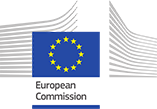In January 2019, the Government and ARCEP issued a joint call for the creation of 5G trial platforms that would be open to third parties and using the 26 GHz band.
France’s Secretary of State to the Minister for the Economy and Finance and the Chairman of the ARCEP presented the first eleven 5G projects that have been selected to use the 26 GHz band.
In January 2019, the Government and ARCEP issued a joint call for the creation of 5G trial platforms that would be open to third parties and using the 26 GHz band. The goal of this call was to pave the way for all players to embrace the possibilities this frequency band provides, and to discover new uses for 5G.
Some projects are focused on one area in particular: logistics (smart ports, multimodal transport management, traceability), smart city (smart buildings), mobility (in-station services for trains or passengers) or covering sporting events.
These licences authorise the projects to use wide frequency bands for a period of up to three years. The players whose projects were selected must have an operational 5G trial network by 1 January 2021 at the latest and make it available to third parties to perform their own 5G trials.
Some of the project owners that have been awarded a licence as of 7 October 2019 are:
- Bordeaux Métropole: the project wants to capitalise on public lighting networks to deploy new infrastructures: 5G deployments are expected to bring ultra-high-speed connectivity to very high-density areas. Bordeaux Métropole, in partnership with the trial’s host operator, Bouygues Telecom, will manage a large ecosystem to develop as many use cases as possible, by bringing in key partners such as the Banque des Territoires, French Tech Bordeaux, Cap Sciences and Bordeaux Ecole Numérique.
- Le Grand Port Maritime du Havre: the project aims to test applications in the field of energy, such as operating smart grids and recharging electric vehicles. Other applications will focus more on logistical operations in the port area, notably operating container terminals. Working with the Le Havre Seine Métropole urban community, Siemens, EDF and Nokia, this project follows through on the region’s Smart Port City Programme.
- Saint-Quentin-en-Yvelines, at the Vélodrome National: The project wants to create an open 5G trial platform for its National Velodrome, to rise to the challenges facing this future Olympic Games site. Use cases will range from augmented reality replay of the different events to applications enabled by progress in fixed and mobile audio and video equipment – including, for instance, to the use of AI (artificial intelligence) in sports media. The region is working along with Nokia, Qualcomm, Airbus and France Television.

